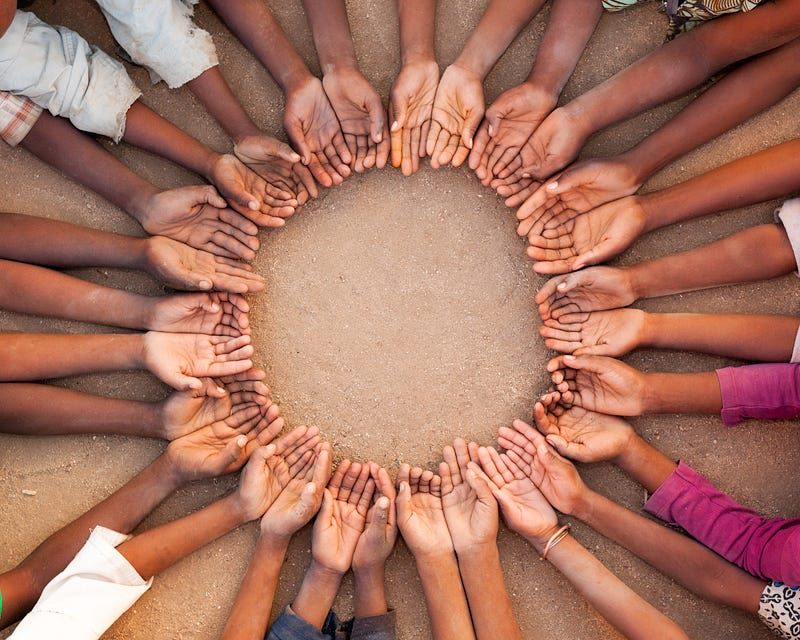Human beings are tribal by nature. Our need to belong far outweighs many things in life. So, we naturally split into tribes.
As Seth Godin puts it, “a tribe is any group of people, large or small, who are connected to one another, a leader, and an idea.”
I have the pleasure of working closely with Beyonce, Denzel Washington, Taylor Swift, and Celine Dion every day.
Well, not exactly. :)
These incredibly famous people just happen to have the same personality types as members of my company’s tribe.
What tribe(s) are you a member of?
Perhaps you are a member of a sports tribe — running marathons around the world. Or you are part of a religious tribe. It’s possible you are part of the global tribe that enjoyed watching Game of Thrones (I am a member).
Maybe you are also like me and enjoy membership in an exciting startup tribe, trying to change the world.
“Humans rule the [planet] because we are the only animal that can cooperate flexibly in large numbers. We can create mass cooperation networks, in which thousands and millions of complete strangers work together towards common goals,” says Yuval Harari, author of Sapiens.
Well, this cooperation does not come naturally.
In fact, many startups have failed because they couldn’t ignite the fire of tribalism to create successful mass cooperation. They were plagued by siloed organizations, internal politics, and distrust. They did not pay attention to the importance of creating a healthy tribe.
As Patrick Lencioni, author of The Advantage puts it, “the single greatest advantage any company can achieve is organizational health. Yet it is ignored by most leaders even though it is simple, free, and available to anyone who wants it.”
I believe the key to building successful teams is inviting members to connect to a common vision that is bigger than themselves. Then, getting them to trust one another. And, finally, creating a culture that allows them to do what comes naturally — form a tribe.

How well do you know the members of your tribe?
At my current venture, we form our teams by hiring the best person for each role. Then, we do something different than most startups.
We have each person take a behavioral assessment and share the results with the entire team. This “personality inventory” provides valuable insight into the “wiring” of each team member.
We use fun-loving names (like Denzel and Celine) for the personality archetypes rather than the technical ones often found in behavioral assessment tools.
For example, some of our team members are introspective, some are outgoing and social. We happen to have a team rich with “out of the box” thinkers and many who are incredibly persistent by nature. We have some who become aggressive when challenged, and others who enjoy the experience of a good debate. We have low-key unassuming people on our team who are deeply loyal. And, we have both analytical and creative thinkers.
Some of my colleagues work well under pressure, some don’t. We also have those who hold themselves to a higher standard than most. Each person is wired differently, affording them a unique perspective on the company, its vision, and their role in its overall success.
Once a quarter, we get together in different groups where each team member shares new insights they’ve gleaned from their colleagues’ behavioral summary. A healthy exchange always ensues. It includes candid feedback on how certain behaviors affected the team.
Doing this greatly improves communication among the team and deepens the trust we have for each other. But more importantly, it cultivates two important skills few people master in many companies, or in life for that matter — empathy and self-awareness.
The more our people are empathetic to the difference in the “wiring” of their peers — why they behave the way they do — the better their working relationship becomes.
And, it also follows that a team filled with people who notice their behavior, their habits, their strengths, their weaknesses, and their feelings, the hotter our tribal fire will burn. The brighter the fire, the more growth, better execution, and success we will have together.
If you lead an innovative startup, focusing on your product is only part of the recipe for success. Innovating on how your team works together can prove to be more important and it begins by knowing who is in your tribe.
Here is a list of tools and books that can help you start getting to know your tribe:
- Predictive Index — “It is like X-ray vision for understanding how your people think and work.” (Every one of our employees and contractors takes it.)
- The Advantage — A recipe book for creating organizational health.
- Whole Brain — A system to measure and describe thinking preferences in people, developed by William “Ned” Herrmann while leading management education at General Electric’s Crotonville facility. There are four types of thinking. Which one is your dominant thinking style? (In a previous company, I used this tool with my whole management team and it greatly improved our communication.)


